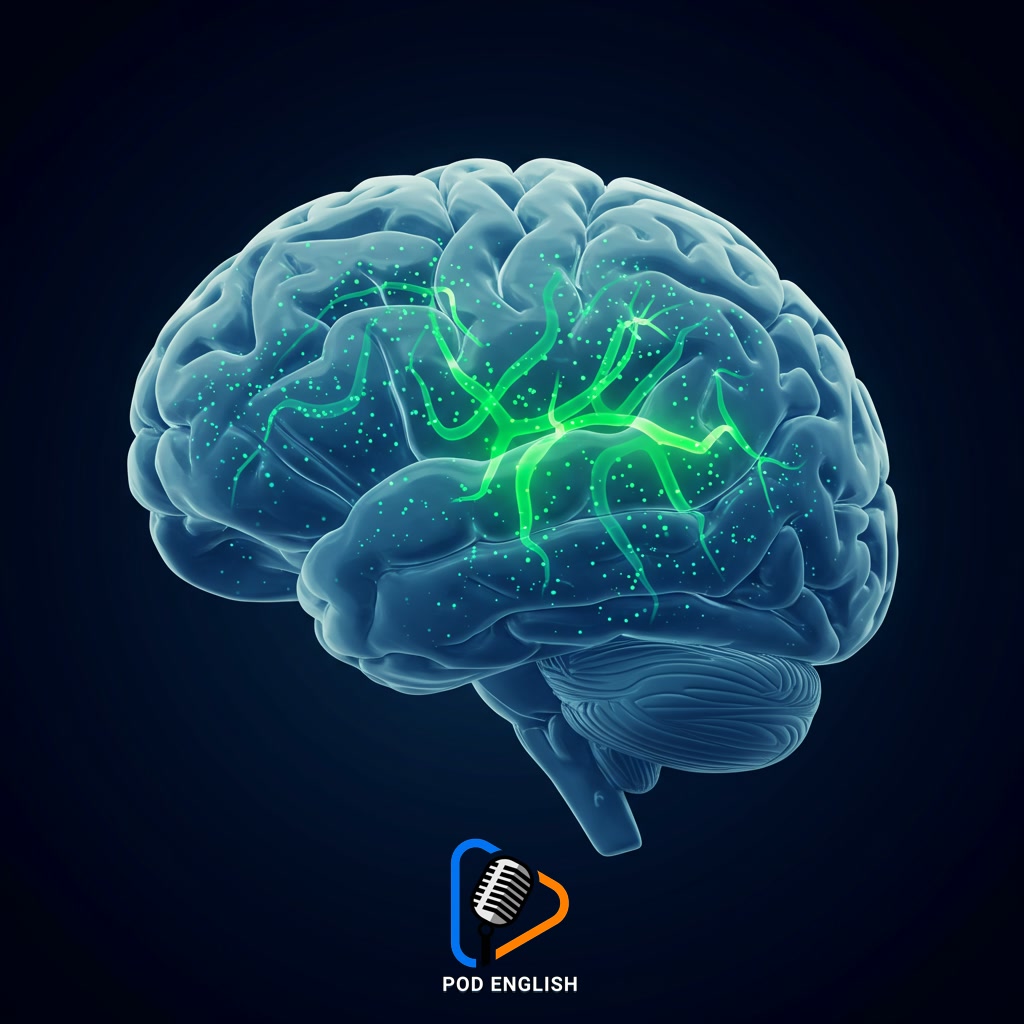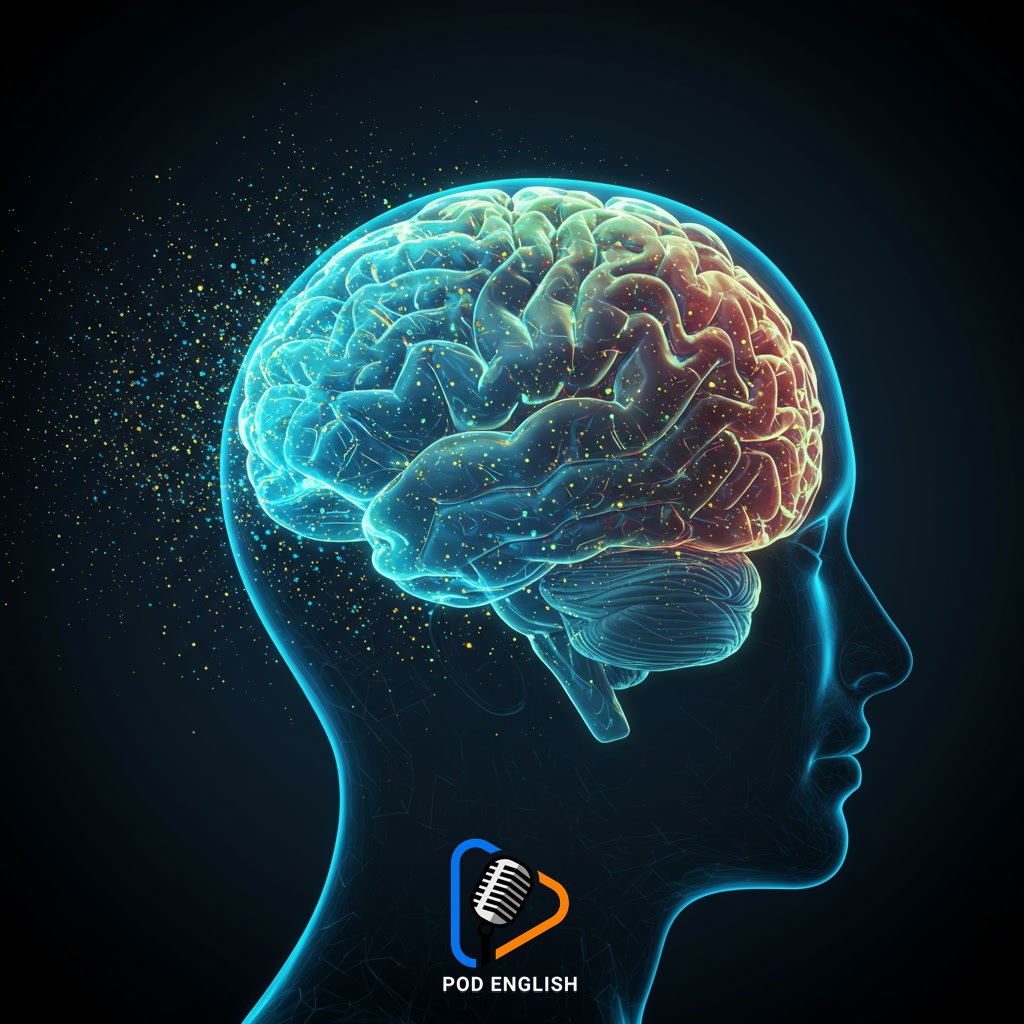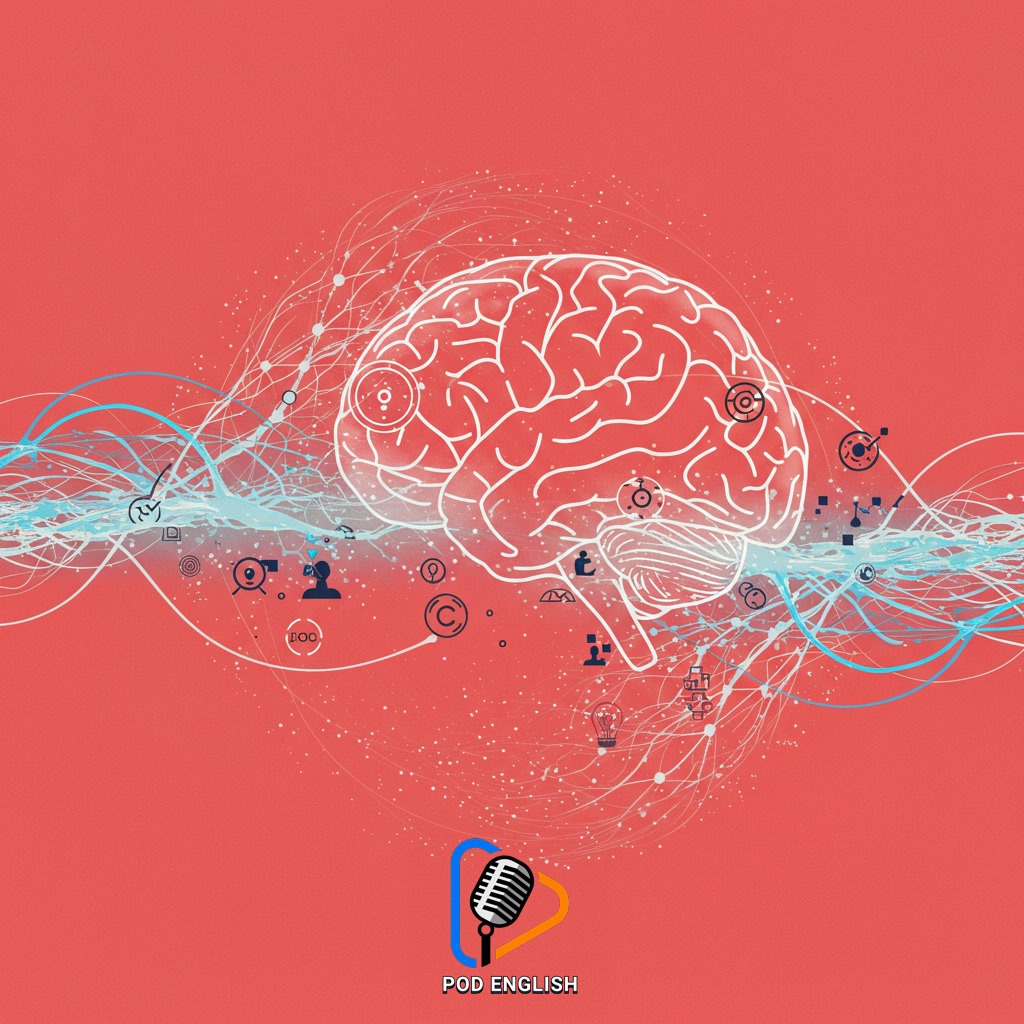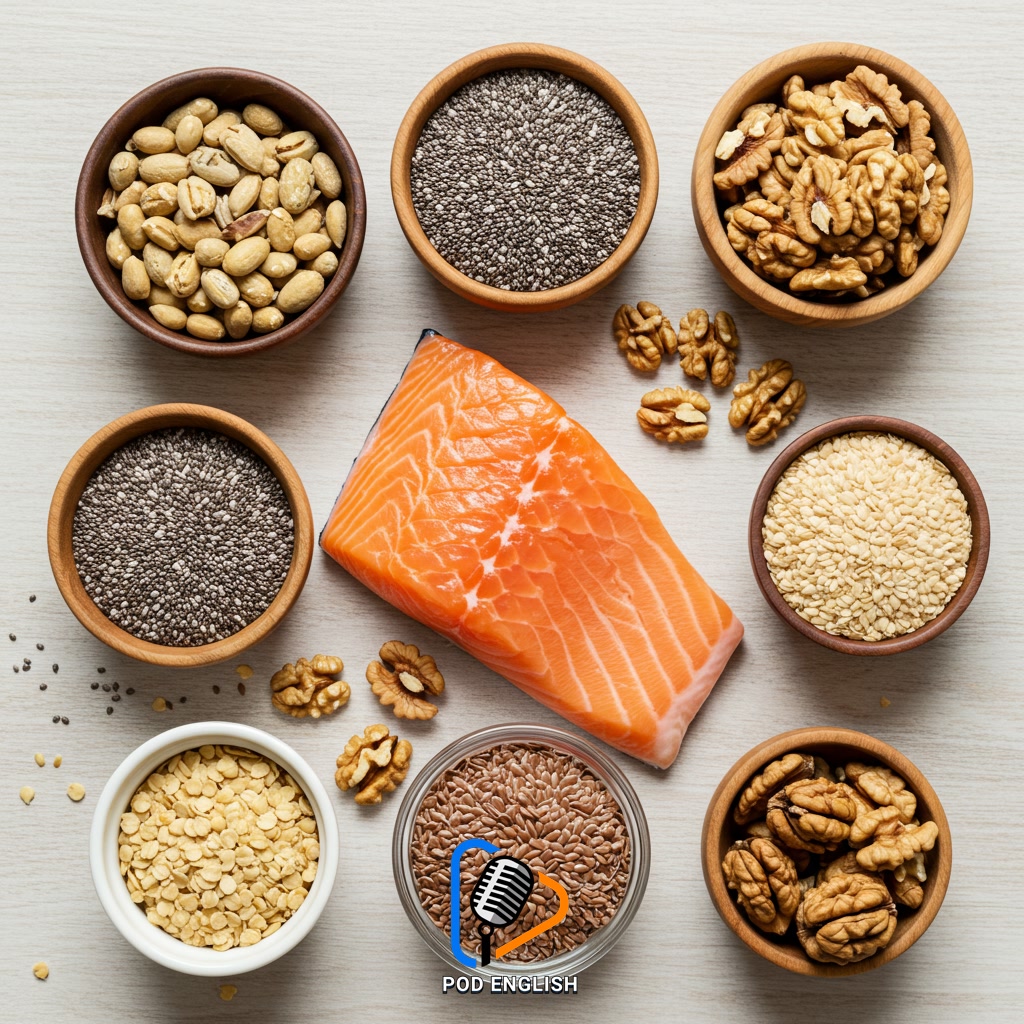Learn English
Omega-3 Secrets Boost Your Brain for Learning English

This content explores how Omega-3 fatty acids can enhance brain function. It specifically focuses on the benefits these nutrients provide for cognitive processes involved in acquiring a new language, such as English. Discover the key roles Omega-3 plays in improving memory, concentration, and overall learning efficiency. Uncover strategies to incorporate Omega-3 into your diet to support your English learning journey.
Table of Contents
- Section 1: Understanding Omega-3s and Their Brain Benefits
- Section 2: How Omega-3s Enhance Key Brain Functions for Learning
- Section 3: The Direct Link: Omega-3s Boosting Your English Learning Journey
- Section 4: Getting Enough: Best Sources of Omega-3s for Brain Health
- Section 5: Integrating Omega-3s into Your Routine for Optimal English Learning
Section 1: Understanding Omega-3s and Their Brain Benefits
Omega-3 fatty acids are essential fats that your body cannot produce on its own, meaning you must get them through your diet. They are crucial components of cell membranes throughout the body, with a particularly high concentration in the brain. Specifically, docosahexaenoic acid (DHA), a type of Omega-3, is a major structural building block of the brain and retina. By helping to maintain the fluidity and integrity of brain cell membranes, Omega-3s facilitate better communication between neurons. This improved neural communication is vital for various cognitive functions. Research suggests that adequate Omega-3 intake can support areas critical for learning, such as enhancing memory recall, improving focus and concentration, and boosting overall cognitive performance. Understanding this fundamental role of Omega-3s helps explain why they are considered important nutrients for brain health and efficiency, especially when engaging in mentally demanding tasks like learning a new language.

Understanding Omega-3s and Their Brain Benefits
Section 2: How Omega-3s Enhance Key Brain Functions for Learning
Omega-3 fatty acids play a vital role in enhancing several key brain functions crucial for learning. Specifically, they are major building blocks of brain cell membranes, particularly in areas like the hippocampus, which is critical for memory formation. By maintaining the fluidity and integrity of these membranes, Omega-3s facilitate better communication between neurons. This improved neural signaling can lead to enhanced concentration, faster processing of information, and better retention of new vocabulary and grammar when learning a language like English. Furthermore, Omega-3s have anti-inflammatory properties that can protect brain cells from damage and support overall cognitive health, creating an optimal environment for effective learning and memory consolidation.

How Omega-3s Enhance Key Brain Functions for Learning
Section 3: The Direct Link: Omega-3s Boosting Your English Learning Journey
Building upon their foundational role in brain structure, Omega-3s directly impact cognitive functions essential for mastering a new language like English. They enhance synaptic plasticity, which is the brain’s ability to form new connections – crucial for memorizing vocabulary and grammar rules. Improved blood flow to the brain, another benefit, ensures that brain cells receive the oxygen and nutrients needed for sustained focus during study sessions. Furthermore, Omega-3s can help reduce inflammation, which is linked to cognitive decline and difficulty concentrating. By supporting these processes, Omega-3 fatty acids create an optimal environment within your brain, making it more efficient at processing new information, retrieving stored knowledge, and maintaining the attention span required for effective English language acquisition.

The Direct Link: Omega-3s Boosting Your English Learning Journey
Section 4: Getting Enough: Best Sources of Omega-3s for Brain Health
To ensure your brain benefits from Omega-3s, incorporating the right foods into your diet is key. Fatty fish like salmon, mackerel, and sardines are excellent sources of EPA and DHA, the forms most readily used by the brain. For those seeking plant-based options, flaxseeds, chia seeds, and walnuts provide ALA, which the body can convert into EPA and DHA, though less efficiently. Algae-based supplements are another direct source of DHA. Making conscious choices to include these nutrient-rich foods regularly helps maintain optimal brain function, supporting memory retention and focus crucial for the demanding task of learning English.

Getting Enough: Best Sources of Omega-3s for Brain Health
Section 5: Integrating Omega-3s into Your Routine for Optimal English Learning
Beyond simply knowing the sources, successfully integrating Omega-3 fatty acids into your daily or weekly routine is crucial for consistently supporting your brain function while learning English. Aim for regular consumption, perhaps two servings of fatty fish per week. If fish isn’t an option, consider daily intake of flaxseeds, chia seeds, walnuts, or algae-based supplements, which provide ALA or direct DHA/EPA. Making these choices a habitual part of your meal planning or supplement regimen ensures a steady supply of these vital nutrients, helping to maintain optimal cognitive performance, focus, and memory recall needed for mastering a new language like English.

Integrating Omega-3s into Your Routine for Optimal English Learning













